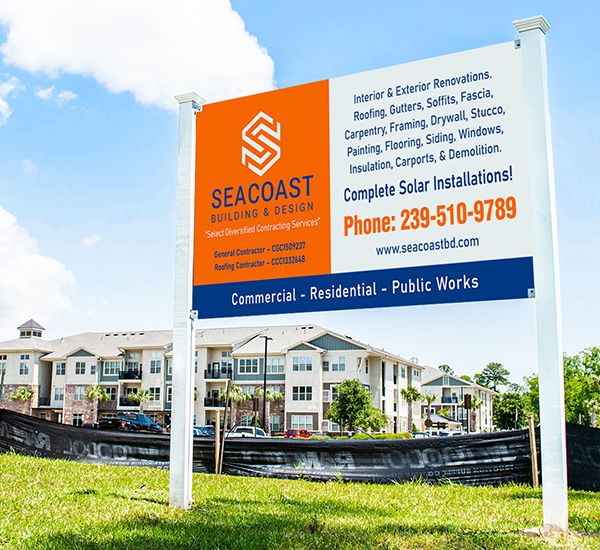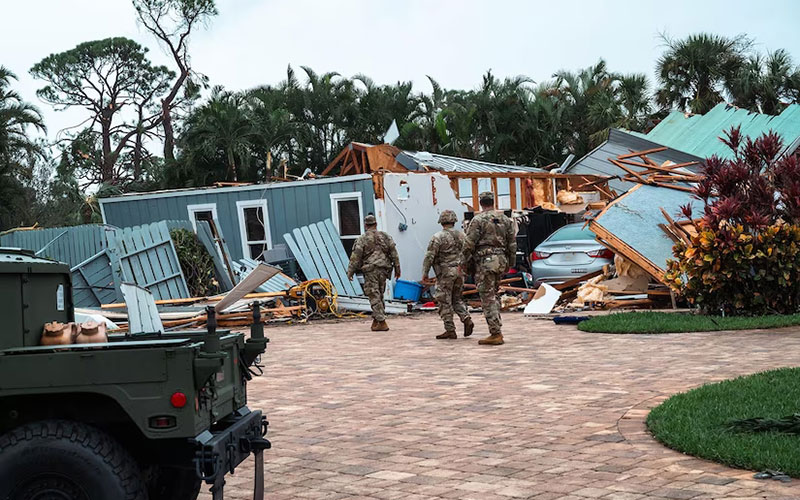October 26, 2024
Hurricane Response Guide
Florida and hurricanes seem to go together as well as Florida and sunshine, palm trees, beaches, or Disney World. 2024 brought more than its share of a not-so-good thing to the Sunshine State, with two of them falling less than two weeks apart. Three hurricanes made landfall in the state during the hurricane season. 2024 is now tied with 1871, 1886, 1964, 2004, and 2005 for the most Florida landfalling hurricanes in a single season.
Below is an outline that can followed for almost any hurricane event, although links and details may change over time. This is not by any means a complete guide, but sufficient to begin the process with reliable references.
A. Federal Emergency Management Agency
Residents impacted by Hurricane Milton can now apply for aid through the Federal Emergency Management Agency (FEMA)
Programs available are:
- Individual Assistance – Assistance to individuals and households (Deadline to apply is Jan. 7, 2025)
- Public Assistance – Assistance for emergency work and the repair or replacement of disaster-damaged facilities (Categories A&B)
- Hazard Mitigation Grant Program – Assistance for actions taken to prevent or reduce long-term risk to life and property from natural hazards
The programs provide financial and direct services to eligible individuals and households affected by the 2024 hurricanes. The assistance is intended to meet basic needs, supplement disaster recovery efforts, emergency work assistance, replacement of disaster-damaged facilities, and mitigation assistance. Residents who need long-term housing are encouraged to apply for individual assistance with FEMA as soon as possible.
Florida county residents who were impacted by 2024 Hurricanes can apply for FEMA assistance if they have uninsured or underinsured necessary expenses and serious needs, according to FEMA. However, FEMA assistance is not a substitute for insurance and cannot compensate for all losses caused by a disaster.
To apply for FEMA assistance:
Visit Disasterassistance.gov. From this post, you can review the application process, apply for Individual Assistance, and check the status of your application. Disaster Survivor Checklist: English Spanish
For application help, call the FEMA Helpline, at (800) 621-3362, 7 a.m. to 10 p.m., seven days a week.
For technical support or site errors, call the Internet Help Desk, at (800) 745-0243, 7 a.m. to 10 p.m., seven days a week.
Application process:
Once FEMA has reviewed your application, the results of the inspection, and/or documentation submitted, you will get a letter explaining:
- Whether you are approved for assistance
- How much assistance you will receive
- How the assistance must be used
- How to appeal FEMA’s decision if you do not agree with it
B. FEMA – Rental and Displacement Assistance
FEMA Displacement Assistance may help homeowners and renters who can’t return to their homes because it was damaged by the recent hurricanes. After receiving an inspection, an applicant may receive Displacement Assistance and may be eligible to receive Rental Assistance.
Displacement Assistance
Displacement Assistance is money to help with immediate housing needs if you cannot live in your home after the hurricane. This money can be used to stay in a hotel, with family and friends, or for other options while you look for temporary housing. Displacement Assistance is a one-time payment. If you have used your Displacement Assistance and you still have housing needs, you can ask for Rental Assistance from FEMA by calling FEMA at 800-621-3362 or visiting a Disaster Recovery Center.
Rental Assistance
Rental Assistance can help owners and renters pay for somewhere to live while repairs are being made or permanent housing is identified. The initial award for Rental Assistance may cover up to two months of rent. After the initial award, applicants can contact FEMA and request Continued Rental Assistance.
C. Disaster Unemployment Assistance
Florida County residents who lost their jobs or had a break in employment, self-employment, or business as a direct result of Hurricanes may be eligible for Disaster Unemployment Assistance from the Florida Department of Commerce.
All work search reporting, waiting week, and Employ Florida work registration requirements for Reemployment Assistance claims have been temporarily waived for Floridians impacted by recent hurricanes in FEMA disaster-declared counties.
D. Flooded Areas with Well Water and Septic Systems
Florida County residents who utilize wells and are in doubt about their water supply should follow local or state health department drinking and bathing advisories. Further, septic drain fields will not work until underground water has receded, so septic systems should not be used immediately after floods. Septic lines may have been broken during flooding or other storms. Contact a local plumber or septic service immediately.
For information on long-term water quality conditions in the area or information on home water treatment devices, contact the Florida Department of Health in your residing county.
E. Disaster Declaration Expedited Permitting
Due to the impact of Hurricane Debbie and Milton, some residential and commercial structures may be in need of major or minor repairs.
Florida Statute 553.7922 allows communities to follow special processing procedures to expedite permitting for these repairs.
Structures that may require major repairs will need to be further evaluated before permits may be issued. View your Florida County Disaster Declaration Permitting Special Processing Procedures to learn more. Seacoast Building & Design can assist and service Lee, Charlotte, Henry, Lower Sarasota, and Northern Collier Counties.
Residents and business owners are encouraged to visit Federal Emergency Management Agency (FEMA) Disaster Recovery Reform Action Section 1206 to learn more about building code and floodplain management administration and enforcement activities eligible for reimbursement through the FEMA’s Public Assistance (PA) program.
F. Required Electrical Inspections for Residents Who Experienced Flooding
Residents in Florida who experienced flooding in their homes due to recent hurricanes should ensure their power remains off until a licensed electrician has inspected their electrical system for safety.
Here are the steps residents should take:
- Have a licensed electrical contractor inspect the home’s electrical system.
- If there is no damage found or repairs are minor and do not require a permit, electric customers located in any Florida county are required to have the licensed electrician complete their electric company Service Release Agreement Residential/Commercial form.
- Once completed, residents should submit the form to their local electric provider’s main office by whatever means is provided.
- If there is damage that requires a permit, an electrician will need to make necessary repairs and call for required inspections from your county building officials before power can be restored.
Before hiring a professional, make sure the individual holds a valid contractor license and is insured to work in your county. Residents can visit your county’s contractor guide on your county’s website.
G. Hire a Contractor for Storm Debris Disposal
When hiring tree trimmers or landscapers to dispose of storm debris, residents must print out the applicable form below, fill it out, and sign it for the contractor to present it at any county drop-off location to prove they are authorized to dispose of the debris on behalf of the resident.

Seacoast Building & Design
Office: (941) 500-5431
Hours of Operation:
Weekdays – 8 am to 6 pm
Saturday – 9 am to 3 pm
Or by Special Appointment.
Payment Methods:
Cash, Visa, Master Card, Amex, Discover, Invoice, Wire, ACH
Company Owners:
Clear & Chandra Dayland

